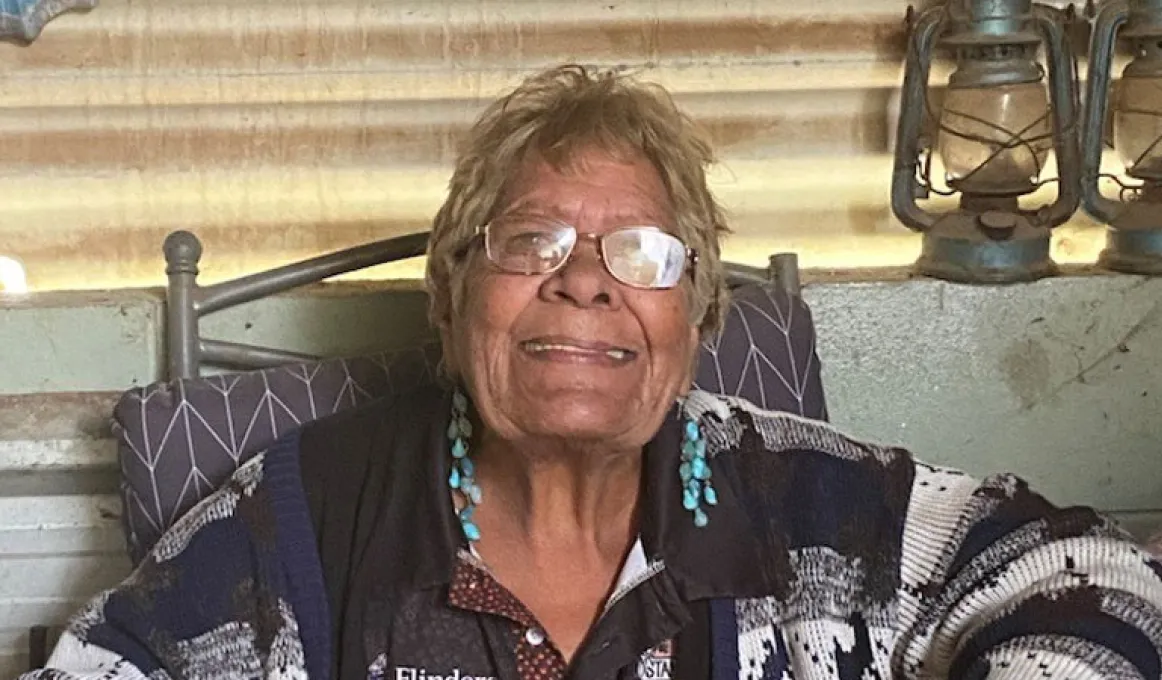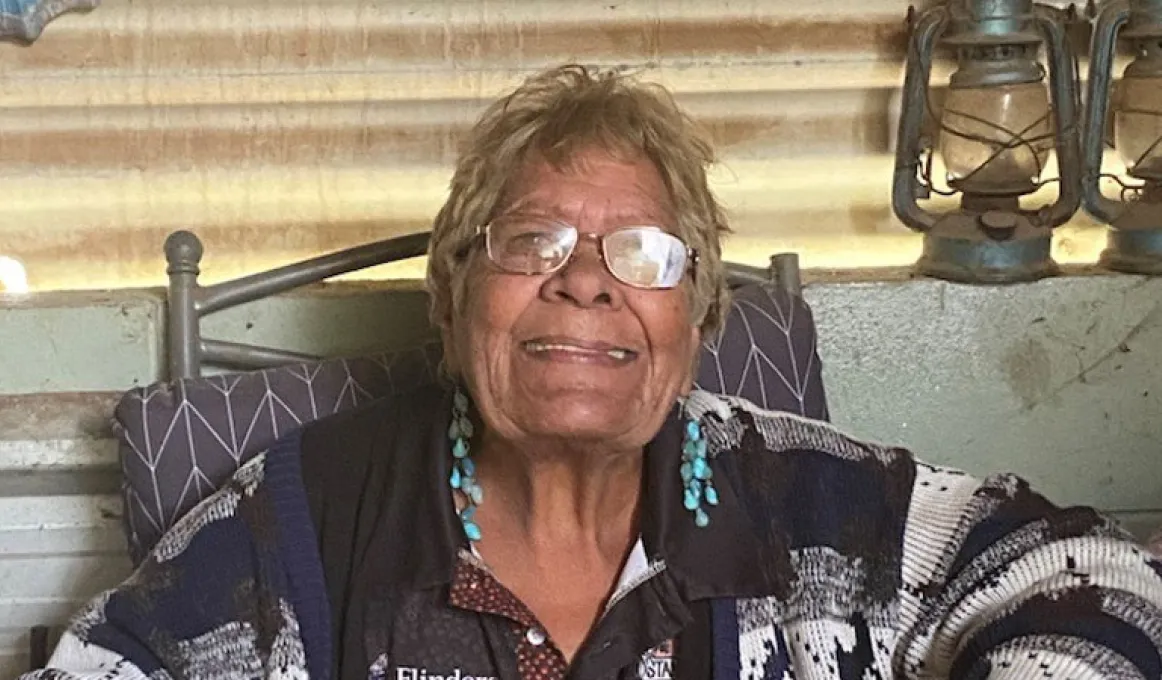Stolen Generations survivor - Eileen Mosely 'I won't be beaten'

Eileen Mosely lived a traditional life with her family on country until she was 6 years old. Then a trip into Alice Springs put her in the sights of authorities.
People of Aboriginal and/or Torres Strait Islander descent were removed from their families and/or communities as children as a result of government policies of assimilation. We now know these survivors as “Stolen Generations”.
The Territories Stolen Generations Redress Scheme provides support to Stolen Generations survivors who were removed from their families or communities in the NT or ACT before self-government or from the Jervis Bay Territory. This story reflects the experience of one applicant to this scheme.
This subject may be very hard to read or talk about. It may bring up difficult feelings and memories. There are 24/7 Support Services available to help.
Eileen Mosely lived safely with her family and community near Finke in the Northern Territory until she was 6 years old.
Then a trip into Alice Springs for a family member’s hospital visit put her in the sights of authorities. She was forcibly removed from the street in Alice Springs and taken to live in institutions and foster homes for the rest of her childhood.
“So they see me there in Alice Springs, a little half-caste kid walking with all these tribal people. They snatched me from there, on the corner near the welfare office. They just grabbed me, and took me,” Eileen recalled.
“I was taken from my safety to a new existence, which traumatised me so much.”
Eileen was an applicant to the Territories Stolen Generations Redress Scheme, and has recently received a Personal Acknowledgement acknowledging her story and recognising the harm and trauma of her removal.
Eileen recalls that her parents protested when she was taken, but they were ignored, and she was taken to St Mary’s hostel.
“Those first few days, I was pretty scared. I’d never been separated from my mother and father before. I was crying, crying all the time. Most of us who were taken did cry a lot, for our parents,” she explained.
The little girl was suddenly in a completely different culture from her life with her family in the desert near Finke.
“We lived traditionally in the bush,” she said.
“I remember going hunting, even though girls shouldn’t go with their fathers when they went with their boomerangs and spears. But I’d have a tantrum, chuck myself on the ground and my Dad would let me go,” she laughed.
The family would hunt for kangaroo and rabbits around the Finke River.
“I must have been getting in his way all the time, but he was a patient man,” Eileen recalls, smiling.
With the community living in the sand hills in traditional huts, living from the land was a part of life for all of the family.
“I loved witchetty grubs, and I loved honey ants, and goanna. Mum would dig for that goanna, and she used to make me put my hand in to pull it out. I thought she was scared to do it, but she was teaching me.”
Eileen’s mother also taught her language, which has stayed with her throughout her life. She was discouraged from speaking language in the homes she was placed in, but she says that having language helped her stay connected to other Aboriginal people and culture.
Despite her harsh experiences after being taken, Eileen is proud that she ‘wasn’t beaten’ by her treatment.
“It’s so important that more Australians know the truth of the Stolen Generations. The more people know, the better things will be,” she said.
“History happened, and it had an impact on people, on generations of people, still does,” she said.
For Eileen, receiving a Personal Acknowledgment was an important moment.
“I did feel very happy to have the Acknowledgement of my story,” she said.
“I felt that the Government person listened and understood where I was coming from. It was so important to me that they spoke about my mother and father and what they went through,” she said.
“I have shared the Acknowledgement with my children also, because it’s their story too,” Eileen explained.
You can hear more from Eileen about her story on the Stolen Generations' Testimonies website and her interview with Anne Ronberg on the Trove archives.
Find out more
You can find out more about the Territories Stolen Generations Redress Scheme:
- https://territoriesredress.gov.au
- 1800 566 111
